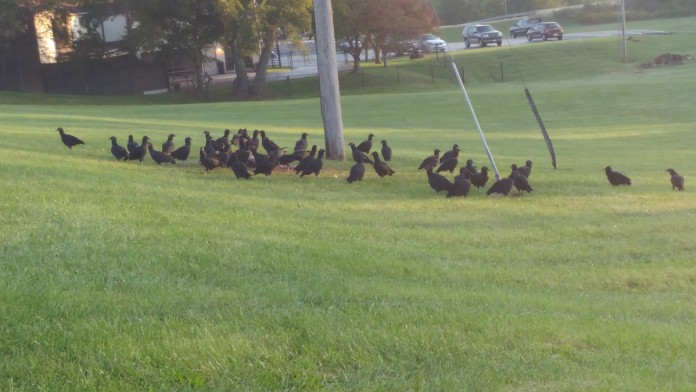
There are many challenges to raising livestock. Disease, injury, expenses and the time commitment needed to care for animals are just a few. There are also a lot of challenges that you as a livestock owner can’t really control. The best defense against these threats from nature is to know what you are up against.
Black cherry trees
Black cherry trees are native to our area yet they pose a serious threat to your livestock. The leaves of black cherry actually contain cyanide.
When these trees fall during a storm or if branches break off into pasture fields, the leaves will begin to wilt, releasing the cyanide. As little as 1.2 pounds of wilted leaves could be a lethal amount to your cattle. Avoid poisoning from these trees by clearing any that are close to or overhang into your pastures.
Black vultures
Black vultures may also be a threat to your livestock. These birds, unlike their close relative the turkey vulture, will feast on more than just carrion. Black vultures have been suspected to kill newborn calves, lambs and piglets. They are also known to tear shingles off of roofs and windshield wipers off of cars.
These birds are protected by the Migratory Bird Treaty and cannot be killed, but permits can be obtained from the U.S. Fish and Wildlife Service.
Ticks
Lyme disease caused by ticks is becoming more and more common but now there’s a new tick in town, the Asian longhorn tick. This tick is known to transmit the bacteria that causes Rocky Mountain spotted fever.
Thousands of Asian longhorn ticks can sometimes be found in the grass or on animals. Livestock can become so heavily infested with this tick that they can lose weight, abort fetuses and even die. If you think you have this tick on your property, please send it to OSU to be analyzed.
Stay alert and educated about the possible natural threats that pose a risk to your livestock. There have always been and will always be challenges associated with farming but none of them outweigh the satisfaction of being a farmer.












